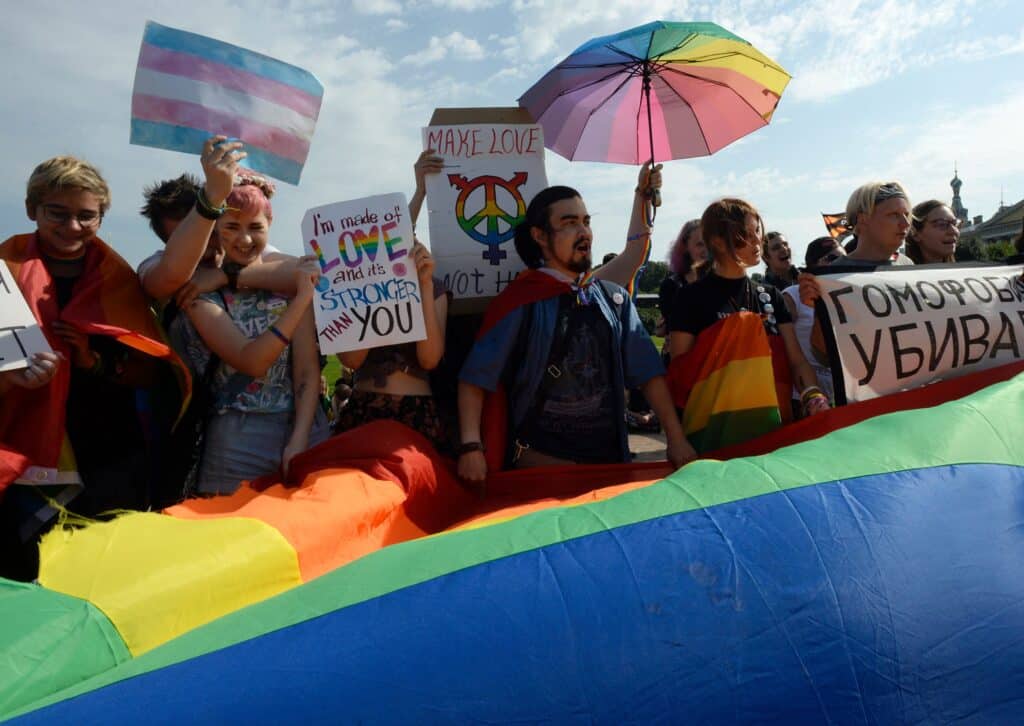Russia fines TikTok over ‘LGBTQ+ propaganda’
Russia has reportedly fined TikTok for refusing to delete what the government calls “LGBT propaganda.”

Russian authorities issued the fine on Tuesday (4 October) for violating the gay propaganda law, which prohibits the promotion of LGBTQ+ content to under-18s.
TikTok’s parent Beijing company ByteDance was fined at least 3 million roubles (£44,000) according to Moscow’s Tagansky District Court.
According to sources reported by Reuters, the case was based on accusations that the company was “promoting non-traditional values, LGBT, feminism, and a distorted representation of traditional sexual values.”
It also fined streaming service Twitch for hosting a video interview with Ukrainian political figure Oleksiy Arestovych, which Moscow said was “fake” information.
Amazon – which owns Twitch – was fined at least 4 million roubles (£59,000) for violating a law that Russia passed in early March prohibiting what it described as “discrediting” the armed forces.
Earlier this year, Twitch was fined 3 million roubles for hosting a similar interview with Arestovych – who is an advisor to Ukrainian president Volodymyr Zelensky.
While neither company has made an explicit statement following the fines, Reuters reported that a TikTok representative was heard insisting that the court proceedings be terminated.
The companies could face significantly more fines by Russia in the future if the so-called “LGBTQ+ propaganda” videos are not removed or restricted.
Additionally, Twitch fines could total up to 8 million roubles if archives of the Arestovych interview – which it considers unreliable information – are not removed.
The country has used the LGBTQ+ propaganda law to suppress LGBTQ+ activism and media that would otherwise put the queer community in a positive light.
It was initially passed on 11 June 2013 and subsequently enacted on 30 June after being introduced by Yelena Mizulina, who argued that the so-called “traditional” relations between heterosexual couples required protections under Russian law.
A proposal to extend the law to adults was then suggested on 11 July 2022 by State Duma information committee chairman Alexander Khinshtein, who said the law is now “insufficient.”
“We propose to fully extend the ban on that sort of propaganda among audiences of all ages (offline, media outlets, the internet, social media, as well as in cinema theatres),” he said.
